
THE NAVIGATING CHANGE CATALOG IS HERE TO HELP YOU ENGAGE, PROVOKE, AND EDUCATE.
Navigating Change: The Podcast from Teibel Education

127: Fractions of Change
Arguably the most challenging part of any change process is rallying the support of the people around you to join you on your way. This week on the show, we present Howard Teibel’s model for approaching any population you’re trying to influence in a specific direction.
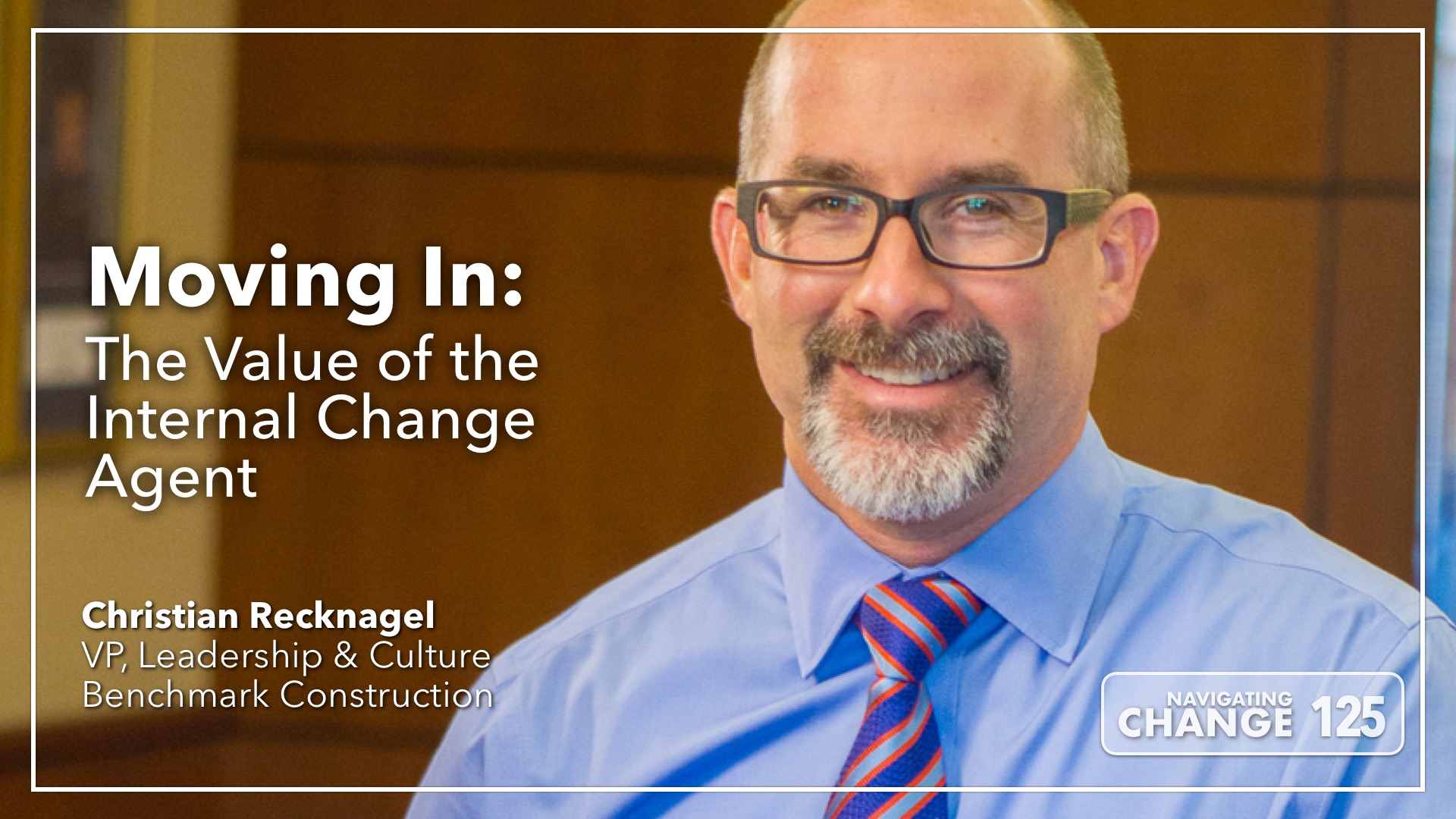
125: Moving In — The value of the internal change agent with Benchmark’s Christian Recknagel
This week on Navigating Change we’re talking to Christian Recknagel about his work at Benchmark Construction. Christian moved from his role as lead consultant at E4 Consulting to internal change management lead at Benchmark, and faces the challenge of innovating from the inside out every day.

119: EACUBO’s Lynne Schaefer on Strategic Conversations and Leading Change at the 2015 Annual Meeting
Incoming EACUBO chair Lynne Schaefer joins us to share her insights into "Facilitating Strategic Conversations" as we prepare for EACUBO 2015 in Philadelphia.

116: The Five Unbelievable Things You Don't Know are Broken in your Leadership Teams!
Hard skills and soft skills. We’ve certainly discussed them before. Your organization is likely full of competent leaders, managers, and team members well qualified to perform their functions, expert finance leaders, marketing and enrollment specialists, academic leaders, and beyond. This week, Gail Gregory and Howard Teibel share their insights into the challenges they’re seeing across institutions.

114: Helping Leaders Transform to Guides at AGB
This week on the show, Howard Teibel shares his experience leading a small portion of the AGB Conclave, and offers insight into the challenges and opportunities ahead of us as we work together toward a strengthening higher education environment.
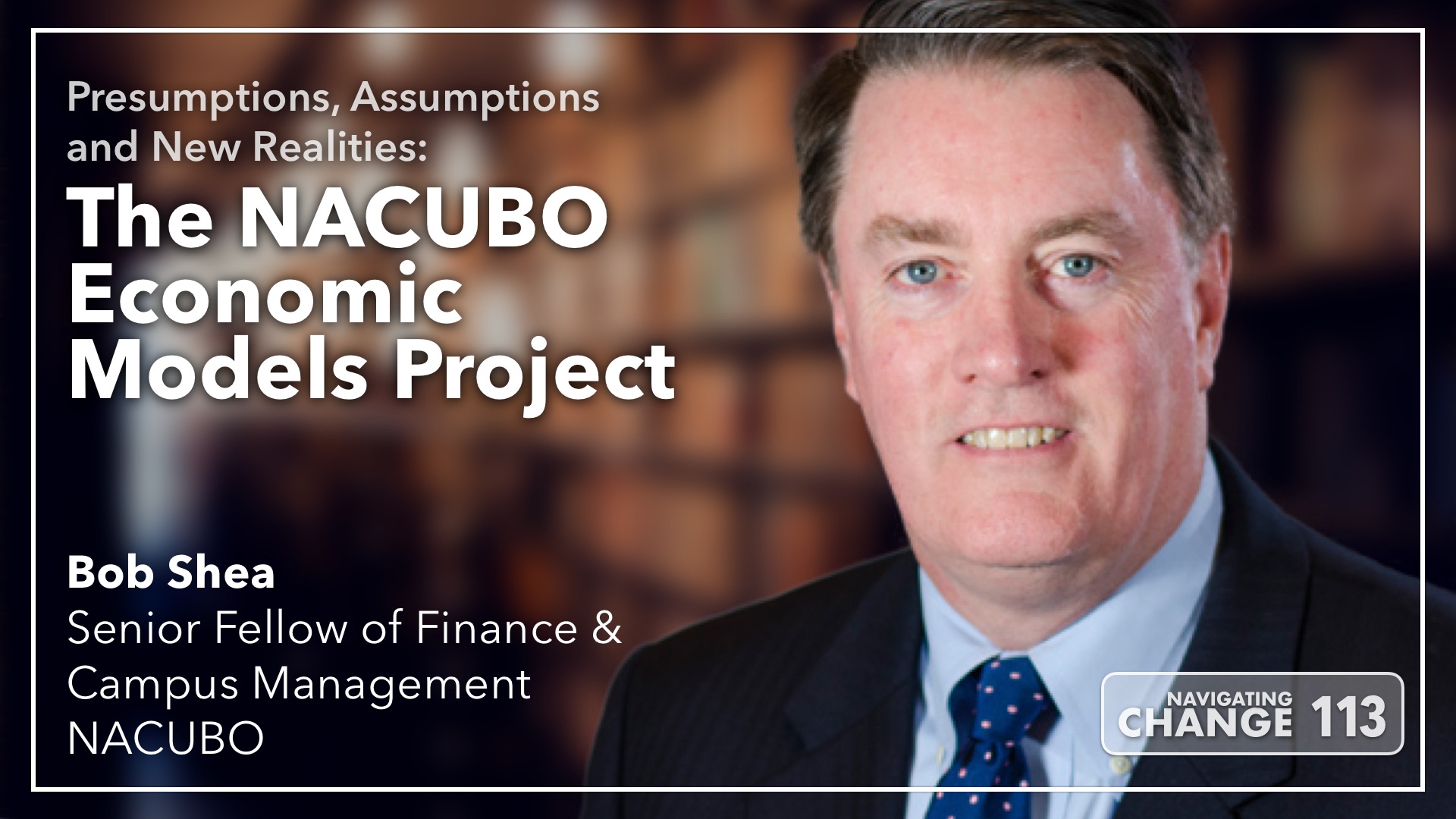
113: Presumptions, Assumptions, and New Realities: The NACUBO Economic Models Project
Thanks to research led by Senior Fellow of Finance and Campus Management Bob Shea, NACUBO is taking the lead in creating a definitive set of factors and a common language around the way institutions exist in the economic landscape. This week on the show, Shea joins Rutgers CBO Mike Gower and Howard Teibel to share how this project and it’s targeted outcomes will impact institutions in their drive toward sustainability and growth.

111: Mergers & Aspirations with Rutgers CBO Mike Gower from NACUBO 2015
Being in the middle of a major school merger, Mike Gower knows the importance of clear and concise strategic plan. As SVP for finance and treasurer at Rutgers, Mike has an active role in leading change as these institutions come together, aligning resources and data in service of delivering top tier education for their students.

110: The Mentorship Mindset and Leveraging Hidden Resources with Nuno Couto
Nuno Couto lives and works from his RV. In his work as a consultant and project manager in higher education, his ultra-mobile command center has become a central component to leading change through his firm, Optimal Partners.
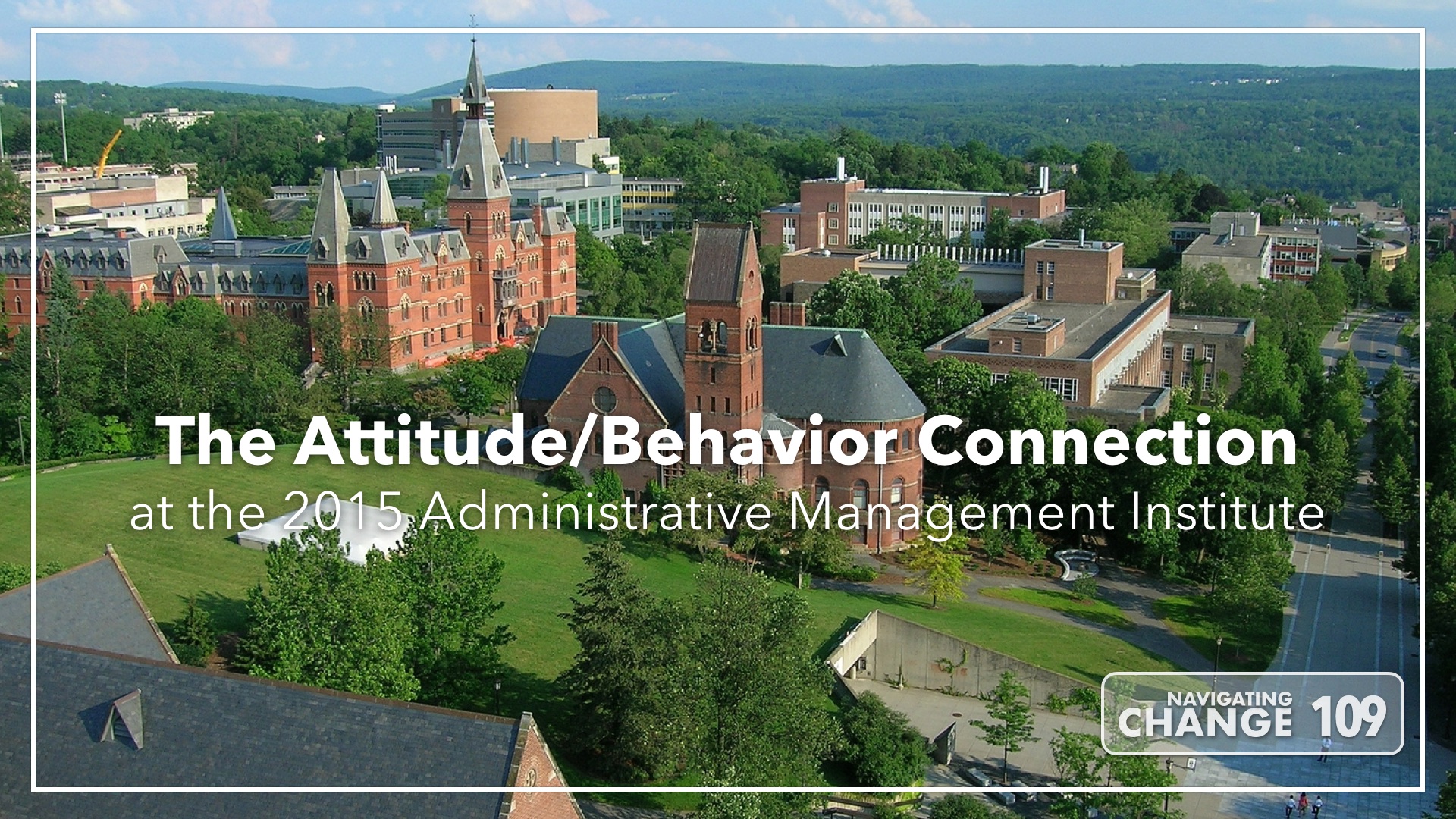
109: The Attitude/Behavior Connection at the 2015 Administrative Management Institute
If you're a line manager, you might live in a world in which you believe that “decisions” are made above your pay grade. This week on the show, we dispel that myth and share how your behavior in the decision making process can affect the attitude of your team, your peers, and your leaders across the institution.

106: Creativity at a Crossroads: the CAO/CBO Partnership at University of Colorado
Faced with declines in state funding leading the nation, University of Colorado has been forced to develop innovative solutions that allow the institution to maintain its position as a leading research institution, while maintaining affordability for its students. Doing so has required a best in class partnership between Senior Vice Chancellor and CFO, Kelly Fox, and Provost and Executive Vice Chancellor for Academic Affairs, Russell Moore.

103: Empowering Teams to Take Initiative
How do you lead from behind and mentor others to step forward? This week, Howard Teibel and Andrew Menke discuss strategies behind empowering teams to take initiative.
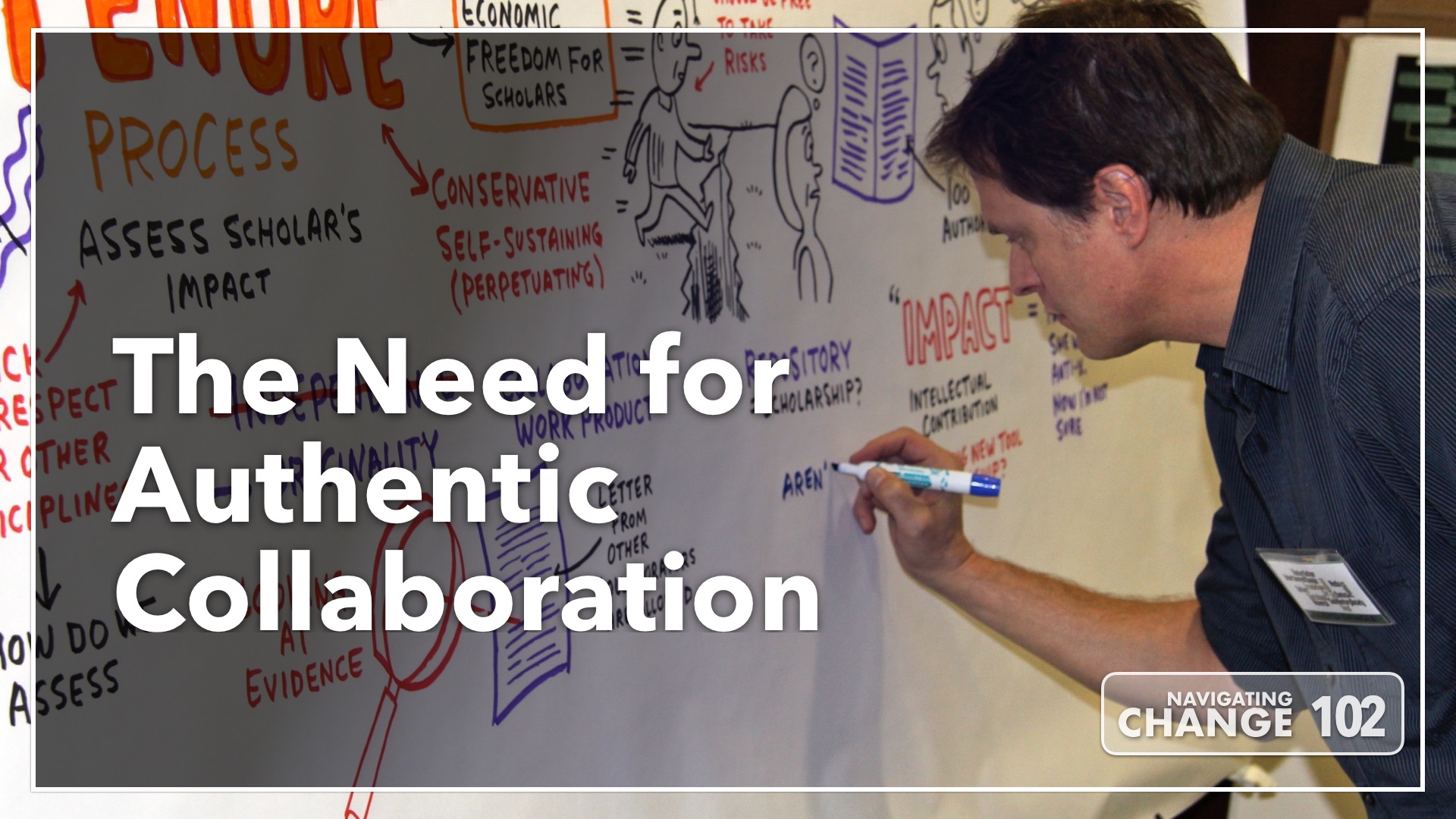
102: The Need for Authentic Collaboration
This week on the show, Howard Teibel and Pete Wright offer suggestions and observations to help institutions break down barriers and move toward significant and authentic shared governance across the institution.

101: The Danger of Thinking in Projects
This week, Howard Teibel and Pete Wright discuss the importance of making the leap from “project thinking” to framing change around transformation, dodging the stagnation that comes with the return to business as usual, once change projects close.

96: Uncovering the Best Place to Work with Ron Friedman, PhD
The challenge and complexity around audacious change projects continues to grow in our institutions. This week on the show, we take on the impact of culture and environment on our ability to drive complex change projects.
Ron Friedman is an award-winning psychologist and author of “The Best Place to Work,” a book that offers a view of the latest research in management, motivation, behavior and beyond, to illuminate what really makes us successful on the job.
We’ve invited Ron to join us for a conversation around the design of workplaces that cultivate engagement and creativity and, as an academic himself, to share his insights into what education can learn and apply toward a stronger work environment that is ready to embrace change.
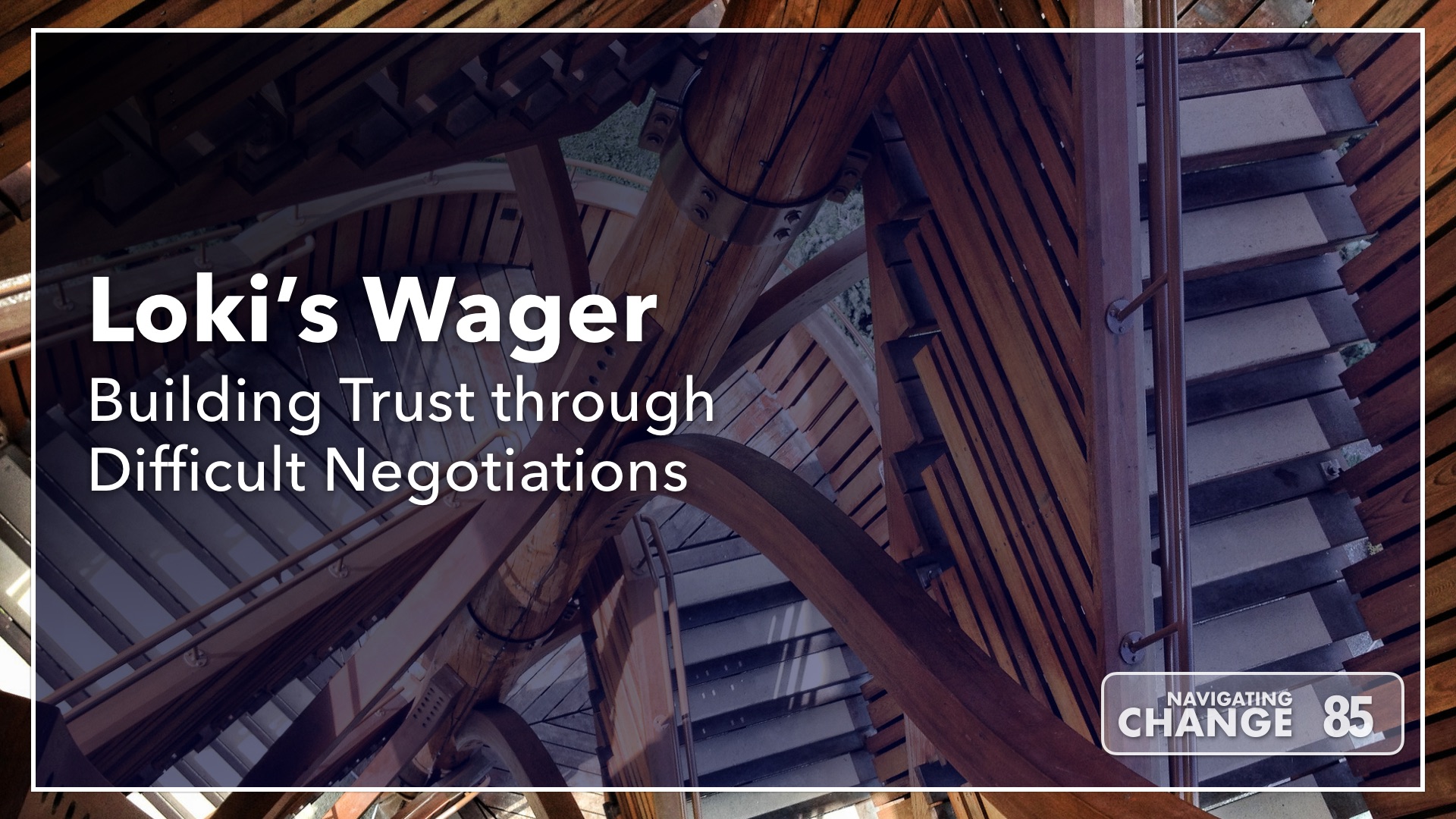
85: Loki's Wager — Building Trust through Difficult Negotiations
This week on Navigating Change, Howard Teibel and Pete Wright discuss Loki’s Wager, and share insight that can help to adjust our natural assumptions around conflict, trust, and the ground rules required for an effective problem-solving and decision-making engine at the negotiating table.
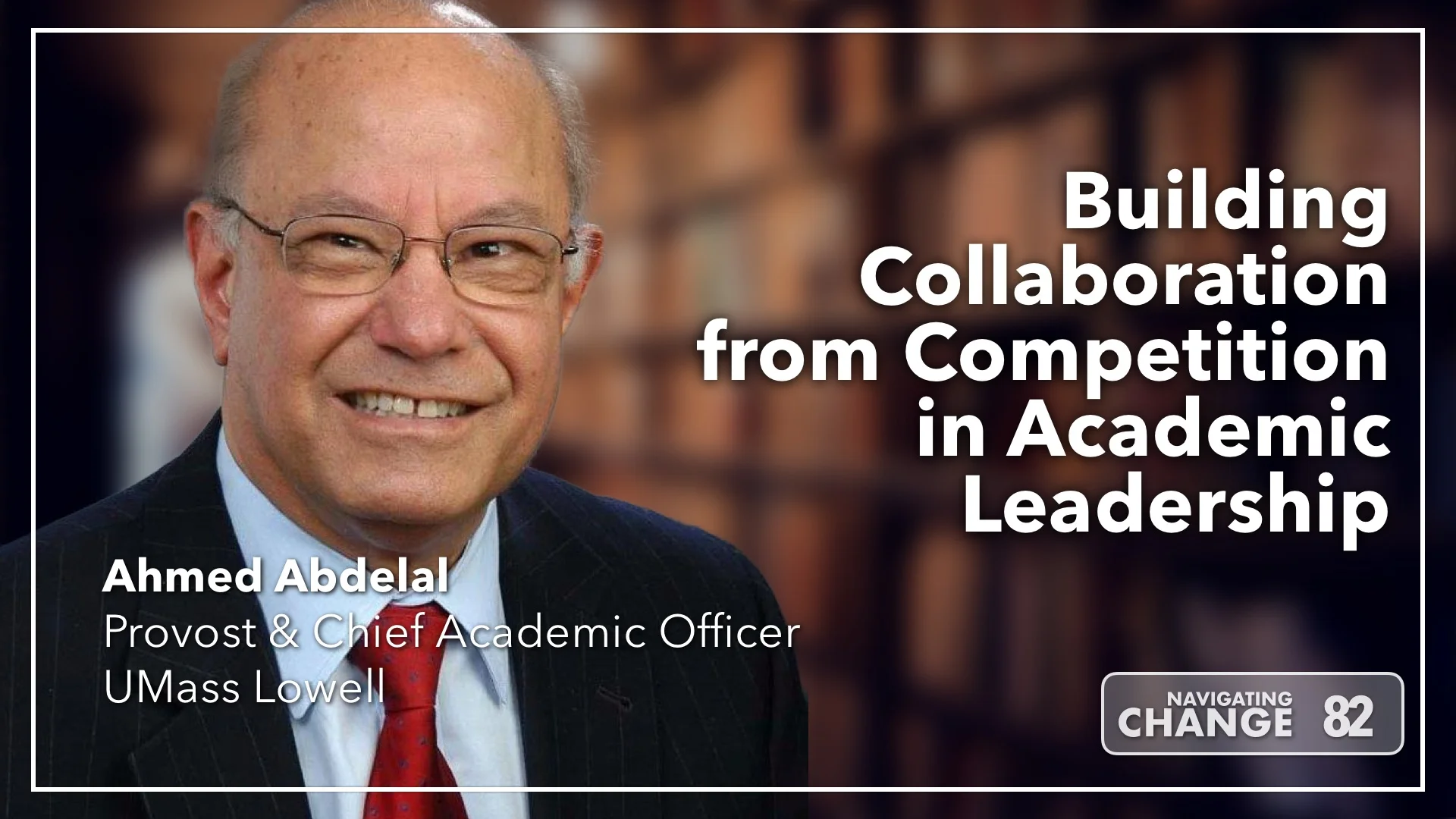
82: UMass Lowell Provost Ahmed Abdelal on Building Collaboration from Competition in Academic Leadership
This week we welcome Dr. Ahmed Abdelal, Provost and Chief Academic Officer at UMass Lowell. His work provides a framework for the structure and culture that makes for a collaborative leadership model that transcends competition and gridlock.

81: Exceptional Group Decision-Making
Creating a culture adept at group decision making is one of the great leadership challenges. It requires alignment in the face of personal stakes on the team, political motivations, individual belief systems and ego. It requires individual contributors to have a keen ability to listen, and an even deeper ability to dig into a key question that is almost never asked, but may be the most important question for team processing: Why are we doing this? This week on Navigating Change, Howard Teibel illuminates the decision making process for teams, shares his own insights for making difficult decisions, and creating teams that do the same.

80: How the Struggle for Perfection can Stifle the Team
For those who live with it, perfectionism can be a powerful tool for creating great work, or a blunt force impeding forward motion. In either case, we often refer to perfectionist traits as profoundly personal, a set of behaviors that impacts us, but that we confidently stow away when teams are involved. The truth: the team is an organism made of individuals. And as individuals, we bring all our behaviors with us. It is the collection of individual traits that determines the identity of the teams in which we work.

79: How do you Transition from Sage to Guide?
This week on the show, Howard Teibel and Pete Wright discuss the key tenets of process consultation and offer guidance for asking tough questions of our own assumptions in our work to drive change in our institutions.

75: Building Outstanding Consulting Partnerships
This week on Navigating Change, Howard Teibel shares his experience in building outstanding relationships with external consultants as a consultant himself. From setting clear boundaries for communication, to taking on key strategic responsibilities, Howard’s insights offer a keen view into what makes a consultative partnership valuable in achieving the strategic goals of the institution.







